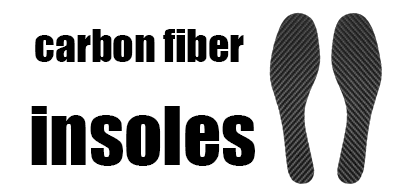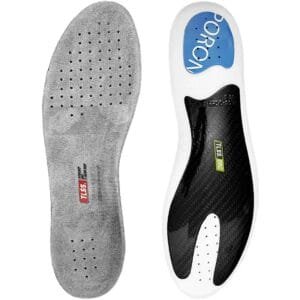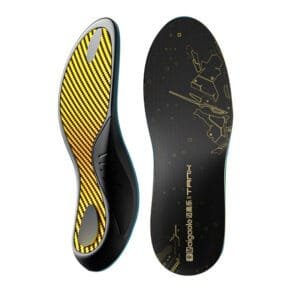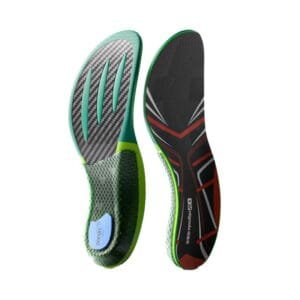If you’re an athlete constantly seeking an edge, you’ve undoubtedly heard the buzz around carbon fiber insoles. Touted as a game-changer for runners, basketball players, and multidirectional athletes alike, these high-performance inserts promise to revolutionize your game. But a critical question holds many back: Are carbon fiber insoles legal for competition?
This definitive guide cuts through the noise. We’ll dive deep into the rules and regulations governing their use and unpack the tangible benefits that make carbon fiber shoe insoles so compelling. By the end, you’ll know exactly whether they’re right for your sport and how to leverage them for maximum performance.
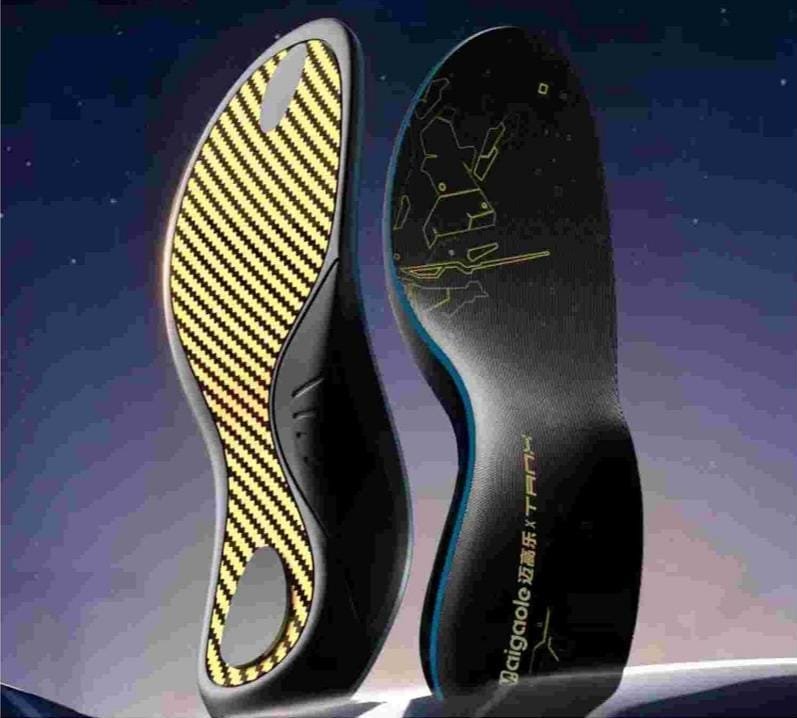
The Legality Question: Are Carbon Fiber Insoles Legal?
This is the foremost concern for any competitive athlete. The answer, like many things in sports, is: It depends on the governing body and the specific sport.
The General Principle of “Artificial Aid”
Most sports federations have rules against “unfair artificial aids” that provide an athlete with an unnatural advantage. The core issue with carbon fiber insoles is whether they are considered such an aid. The legality often hinges on two factors:
-
The rigidity and spring-like effect: Does the plate create a “lever effect” that propels the athlete forward in a way that mimics the banned blade prostheses?
-
The construction of the original shoe: Rules often state that any plate or insert must not be stronger or grant more advantage than the original equipment that was certified for competition.
Key Regulations by Sport
-
Running (World Athletics Rule 5.14): This is the most cited rule. It states that shoes must be “reasonably available to all” and not constructed so as to give “any unfair additional assistance or advantage.” The rule primarily targets the shoe’s midsole and embedded carbon plate. Inserting an aftermarket carbon fiber insole into a shoe that did not originally come with one could potentially be deemed non-compliant because it fundamentally alters the shoe’s performance characteristics beyond its certified state. For most elite, sanctioned competitions, it is risky.
-
Basketball (NBA/NCAAB): The NBA rulebook is less specific but grants officials broad discretion to disallow equipment that is deemed “dangerous” or gives an “unnatural advantage.” While carbon fiber insoles for basketball are marketed for energy return and injury prevention, their use in professional leagues would likely require prior approval.
-
Soccer (FIFA): FIFA’s Laws of the Game state that a player must not use equipment that is “dangerous to himself or another player.” The rigid nature of a carbon fiber plate could be deemed dangerous in a sport involving tackles and cleats. Their use in high-level matches is likely prohibited.
The Unmatched Benefits of Carbon Fiber Insoles
Assuming you are using them in a legal context, the benefits of carbon fiber insoles are significant and backed by the same principles that make carbon-plated running shoes so popular.
1. Enhanced Energy Return and Propulsion
This is the flagship benefit. The carbon fiber plate is extremely stiff and acts as a spring. As you load weight onto your foot during your stride (midstance), the plate compresses and stores energy. Then, as you push off (toe-off), it snaps back to its original shape, returning that energy and propelling you forward. This translates to less energy wasted and more efficient movement, which can be crucial in the final stages of a race or game.
2. Improved Stability and Support
Unlike flimsy standard insoles, a rigid carbon fiber plate provides exceptional arch support and midfoot stability. It effectively reduces excessive foot torsion (twisting) and limits energy loss through unwanted foot movement. This creates a more stable platform for powerful pushes and cuts, especially in multidirectional sports like tennis, basketball, and soccer.
3. Reduced Muscle Fatigue
By leveraging the plate’s spring-like effect, your calf muscles (gastrocnemius and soleus) don’t have to work as hard to propel you forward. Studies on carbon-plated shoes have shown a measurable reduction in calf muscle fatigue. This means you can maintain your form and power output for longer, whether you’re on mile 20 of a marathon or the fourth quarter of a game.
4. Potential for Injury Prevention
While not a magic bullet, the stability offered by carbon fiber shoe insoles can help mitigate issues related to overpronation (ankle rolling inward) and supination (rolling outward). By promoting a more efficient and aligned stride, they reduce the strain on the plantar fascia, Achilles tendon, and shins, potentially helping to prevent common overuse injuries like plantar fasciitis and shin splints.
-
$159.00Original price was: $159.00.$93.99Current price is: $93.99. -
$134.00Original price was: $134.00.$89.99Current price is: $89.99.
Choosing the Right Carbon Fiber Insoles for Running and Beyond
Not all carbon insoles are created equal. Here’s what to look for:
Plate Stiffness: Some plates are stiffer for maximum energy return (ideal for straight-line speed), while others are slightly more flexible for sports requiring agility and cutting.
Top Comfort Layer: The carbon plate is rigid. A high-quality foam or gel top layer is essential for cushioning and comfort.
Fit: They must fit perfectly within your shoe without crowding your toes or lifting your heel excessively.
Conclusion: Performance with a Caveat
Carbon fiber insoles offer a fascinating blend of performance-enhancing benefits, from explosive energy return to improved stability. For training, recreational use, and non-sanctioned events, they can be a powerful tool to boost your performance and protect your body.
However, the question of “are carbon fiber insoles legal” has a complex answer. Competitive athletes must exercise extreme caution and due diligence. The potential for disqualification in sanctioned events is very real.
Ready to experience the benefits in your training? Explore our curated collection of high-performance carbon fiber insoles designed for runners and athletes. Find the perfect, legal edge to elevate your game today.
